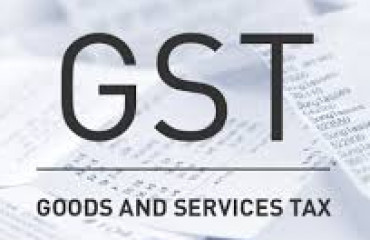
The 50th GST Council meeting is scheduled to take place on 11 July. Six years ago, the Modi government rolled out the biggest indirect tax reform in India. A nationwide GST, which subsumed 17 local levies like excise duty, service tax, and VAT, and 13 cesses, was rolled out at the stroke of midnight on July 1, 2017. The members of the Council, the apex decision-making body with regard to policy making and GST rate decisions, include finance ministers from all states and UTs, besides the Minister of State in the Union Finance Ministry.
The 50th GST Council meeting is scheduled to take place on 11 July. Six years ago, the Modi government rolled out the biggest indirect tax reform in India. A nationwide GST, which subsumed 17 local levies like excise duty, service tax, and VAT, and 13 cesses, was rolled out at the stroke of midnight on July 1, 2017. The members of the Council, the apex decision-making body with regard to policy making and GST rate decisions, include finance ministers from all states and UTs, besides the Minister of State in the Union Finance Ministry.
Under GST, a four-rate structure that exempts or imposes a low rate of 5% tax on essential items and a top rate of 28% on luxury and demerit goods is levied. The other slabs of tax are 12% and 18%.
Besides, there is a special 3% rate for gold, jewellery, and precious stones and 1.5% on cut and polished diamonds. Besides, a cess is levied on the highest tax slab of 28% on luxury, sin, and demerit goods.
In the pre-GST era, the total of VAT, excise, CST, and their cascading effect led to 31% as tax payable, on average, for a consumer.
The monthly GST revenues, which used to be ₹85,000-95,000 crore when GST was launched in 2017, have soared to around ₹1.5 lakh crore and are moving northwards.
Here are the key decisions taken at the 49th GST meeting:
- GST on pencil sharpeners has come down from 18% to 12%
- GST rate cut on Rab/Liquid jaggery reduced to nil or 5% (labelled/packaged) from 18%
- GST on tracking devices fixed on durable containers is now nil
- The government specified retail sale price-based GST cess rate on pan masala and tobacco manufacturers with effect from April 1.
- Renting of premises by registries of courts/tribunals for commercial use to local bodies at RCM
- GST on tracking devices fixed on durable containers is now nil, subject to conditions.
- The Council also recommended that an amnesty may be provided in the past cases, where registration has been cancelled on account of non-filing of the returns, but the application for revocation of cancellation of registration could not be filed within the time specified in section 30 of CGST Act, by allowing such persons to file such application for revocation by a specified date, subject to certain conditions.
GST: The pending reforms
According to hinktank Global Trade Research Initiative (GTRI), the most critical pending GST reform is the upgradation of the GST Network to prevent fake supplies and fraudulent claims of Input Tax Credit (ITC).
"Data analysis and physical checks alone cannot completely solve the problem. The GSTN should enable linking of invoice level information filed for claiming ITC by buyer (from GSTR 3B) with the information provided by input suppliers (GSTR 2A and GSTR 2B)," thinktank said.
The GSTN is unable to connect the supplies in a value chain, resulting in significant revenue loss to the government and causing problems for honest businesses.
Issues like rationalisation of tax rates and slabs, and levying GST on petrol, diesel, and ATF, are still hanging fire.
